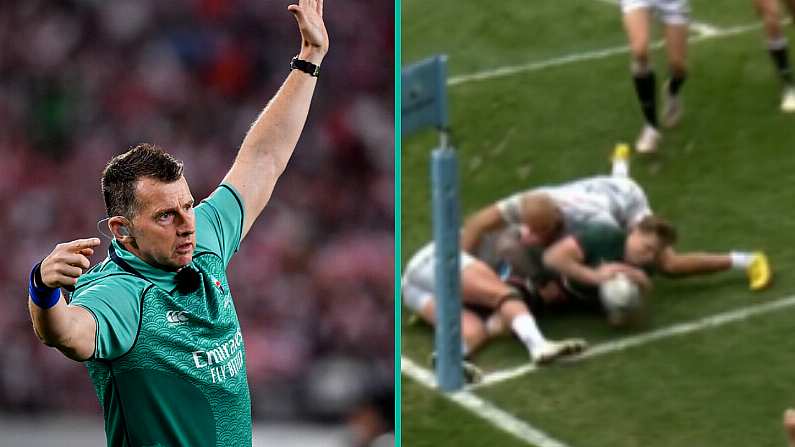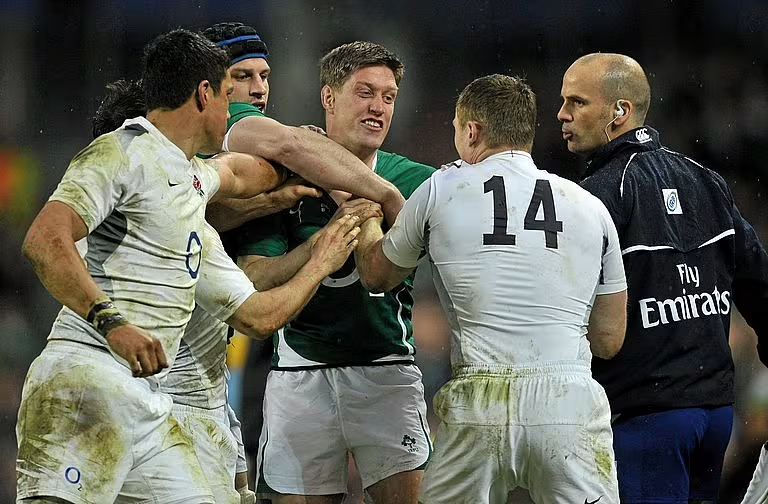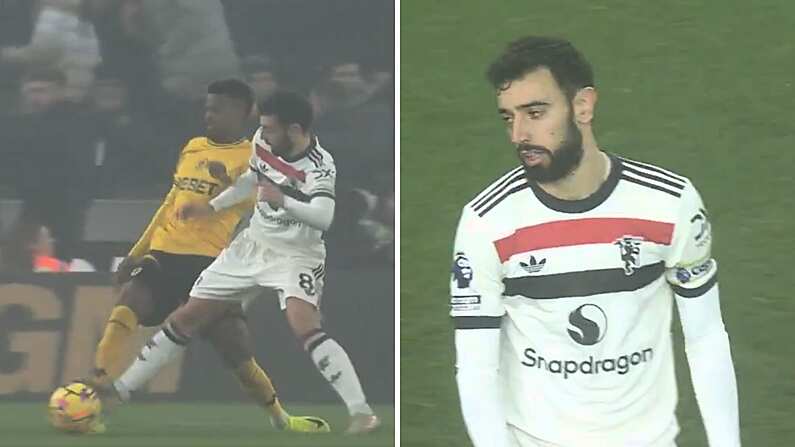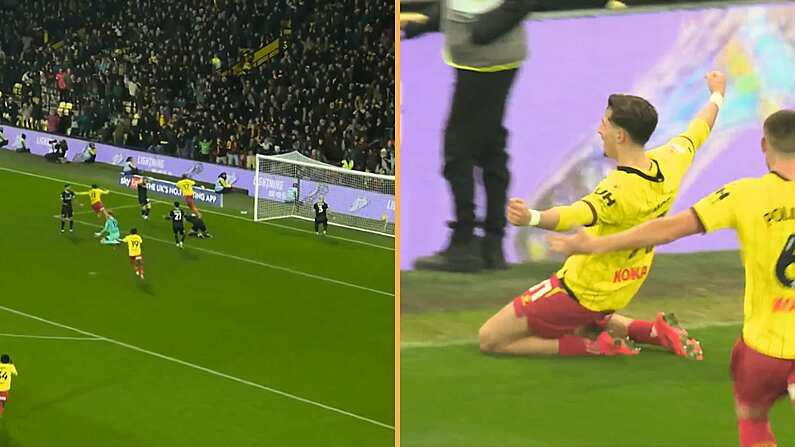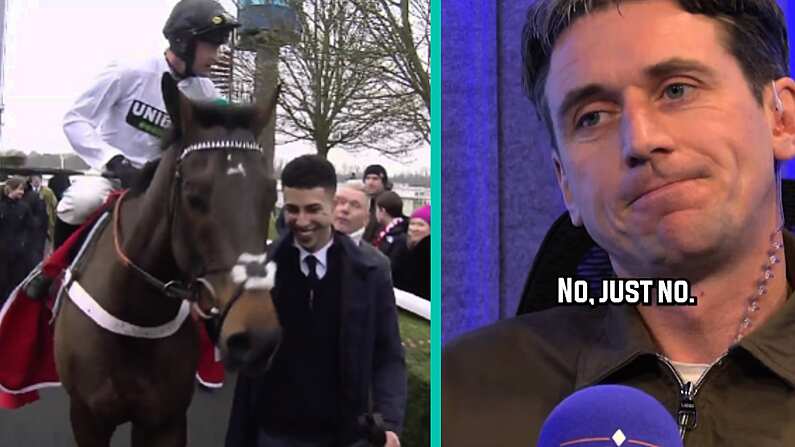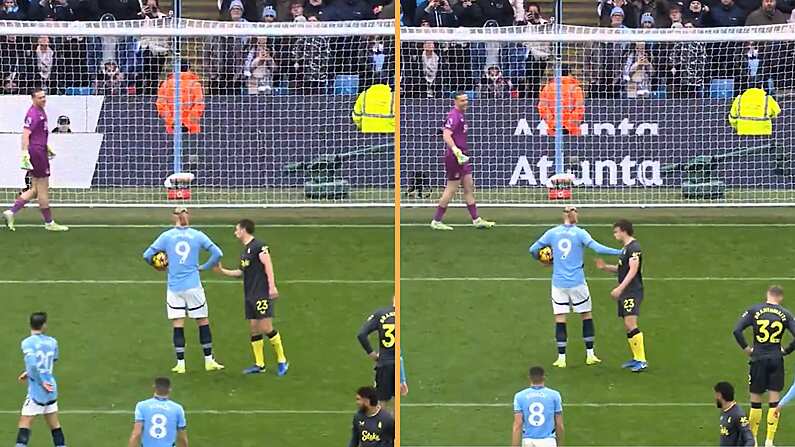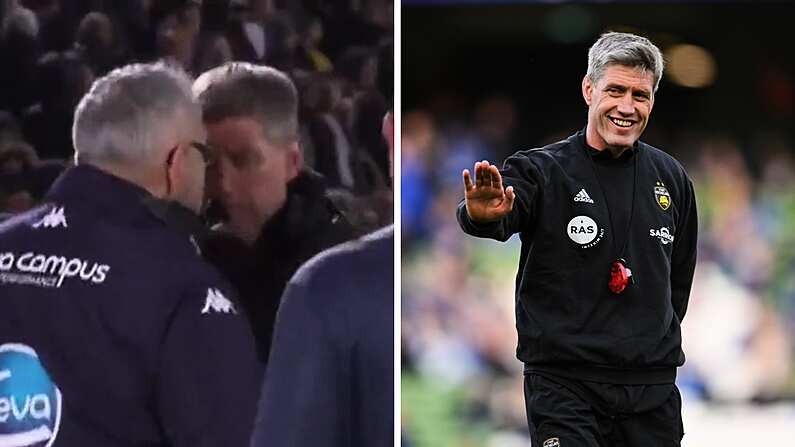During yesterday's Gallagher Premiership meeting between Leicester Tigers and Exeter Chiefs, referee Karl Dickson sent-off Exeter winger Olly Woodburn after awarding him his second yellow card of the match.
The decision caused much debate on social media, and, rather refreshingly, the incident did not revolve around tackle height and shoulder to head contact.
While in the process of stopping Chris Ashton from sliding over the line for a try, Woodburn slid in himself and, with the help of Stuart Hogg, managed to push the record breaking winger into touch.
However, Dickson referred back to law 13.4 which states that, “players on their feet and without the ball must not fall on or over players on the ground who have the ball or who are near it.”
While Woodburn did technically breach this rule, as you can see from footage of the try, it was a tough call as the contact was very much in from the side rather than from the top, and it was far from dangerous play.
None the less, Dickson felt that he had committed the foul, and thus he had no choice but to award a penalty try and a second yellow card.
Nigel Owens Has His Say
Forget for a minute whether you think it’s a penalty try or not . But once the referee decides it is a Penalty try then the player responsible has to be YC under law. https://t.co/XUGrbo3BHd
— Nigel Owens MBE (@Nigelrefowens) April 16, 2023
READ HERE: Nigel Owens Has Been Offered An Intriguing Coaching Position By South Africa
Referee guru Nigel Owens - often the man who fans look to for the definitive opinion on a controversial ref call - was of the opinion that Woodburn should not have been penalised as it could lead to players diving early to gain an unfair upper hand.
"Personally if we penalise this then players will dive on the ground from 5m out,slide over knowing that it’s virtually impossible to defend it. He doesn’t dive on him so for me I’d play on. But not sure if the refs have had a directive on it mind."
“(It’s the) same as law (which) says no hands in ruck but we will allow the scrum half to dig in and get the ball back. The law says no but we allow it.”
Which such scrutiny on the decision from Dickson, the law, and how referees should interpret it, will surely be looked at by the governing bodies.

